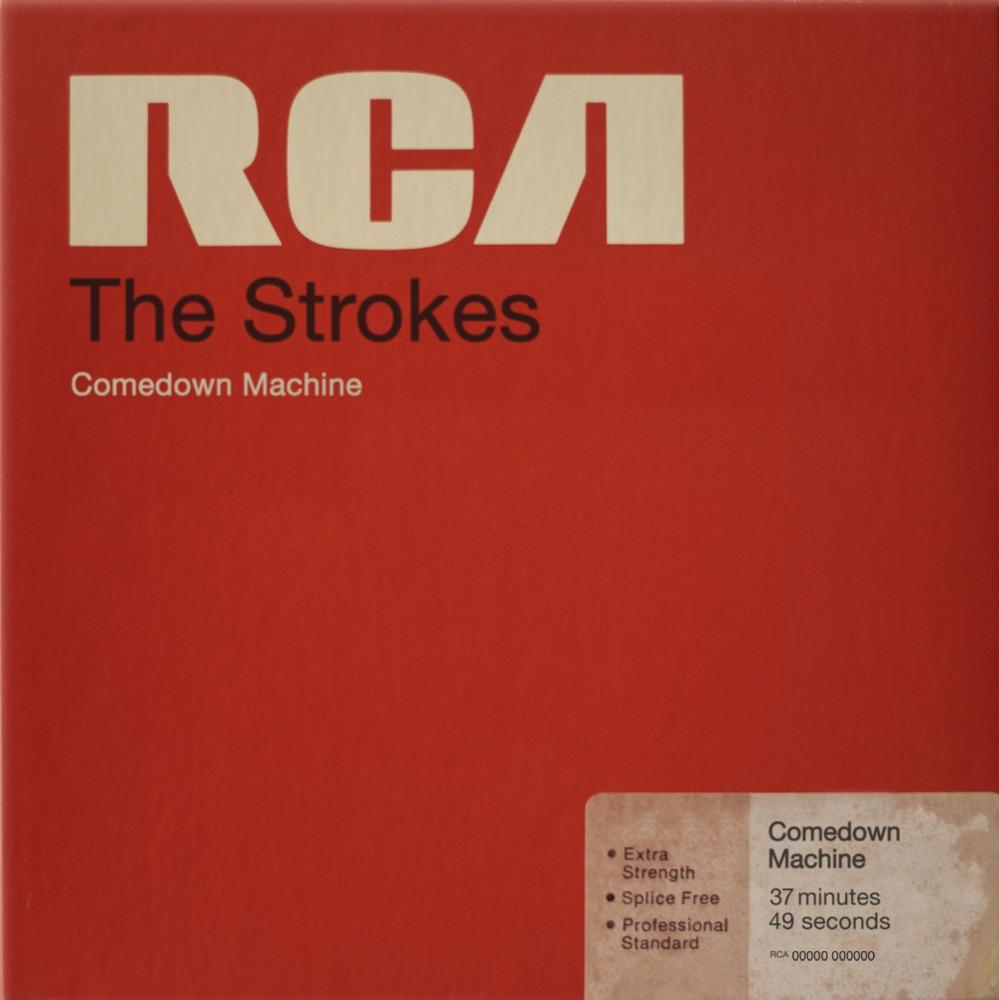After the weathered-looking red album recently hit shelves, the alternative band, The Strokes, are still pumping out solid tunes with their fifth studio album. The vintage RCA records vinyl sleeve cover art mimics the sound the band creates throughout the album: a recognizable, yet newly worked experiment with synthesizers and falsetto. Boasting 11 new tracks ranging from classic Strokes to 80’s synthpop, the new album “Comedown Machine” has as much variety as it does vitality.
“One Way Trigger,” the first song leaked from the album, is a standout which utilizes Julian Casablancas’ vocals mixed with a catchy, repetitive synth to create a high power track. Upon first listen, I was confused and a little disappointed because this was not what I expected from The Strokes. Nonetheless, I grew to love the song and it soon became a favorite of mine from the album. It sets the stage for the album for being experimental yet endearing after the first few listens.
Another standout track, “Welcome to Japan,” features more 80’s synth loops and thoroughly entertaining lyrics, creating a truly addictive track. The lyrics aren’t only humorous but memorable too, satirizing similar 80’s tracks and crooning, “What kind of asshole drives a Lotus?” The combination of the lyrics and infectious chorus make this a key track on “Comedown Machine.”
“50/50” is a powerhouse track with abrasive guitars, scratchy vocals and driving drums. The Strokes prove they still have the power and emotion they had in “Is This It,” the Strokes’ first studio album, and “Room on Fire,” their second album. I was drawn to this song for its neo-grunge sound and hardcore drumming, which is a genre the Strokes seem to perform well.
The song “Partners in Crime” starts off with hypnotizing guitar rhythms akin to that of the youthful playing in “Someday” from “Is This It,” showing their original fans they haven’t forgotten about them. The track then moves to a sort of falsetto-duet which makes it a strange but enticing track.
The album closes with the track “Call It Fate, Call It Karma,” a song that seems like it was derived straight from the phonograph era. The song cleverly works in the distant sound of the electric guitar without sounding like it left the lounge. Sounding as if it belongs in The Great Gatsby, the track is pure beauty and unbridled creativity. Between its sensual falsetto and antiqued record sound effects, The Strokes were very successful at creating a different, alluring work of art.
After listening to the album in its entirety, I felt satisfied and accepting of The Strokes’ new approach in “Comedown Machine.” Overall, I give it an eight out of 10 for the band’s willingness to try something new while being held to the high standards of “Is This It.” The album possesses an exciting and thoroughly entertaining sound. The result of these endeavors is a step in the right direction for the evolution of the band as a whole and possibly outside of the box after The Strokes’ chart-breaking first album.



